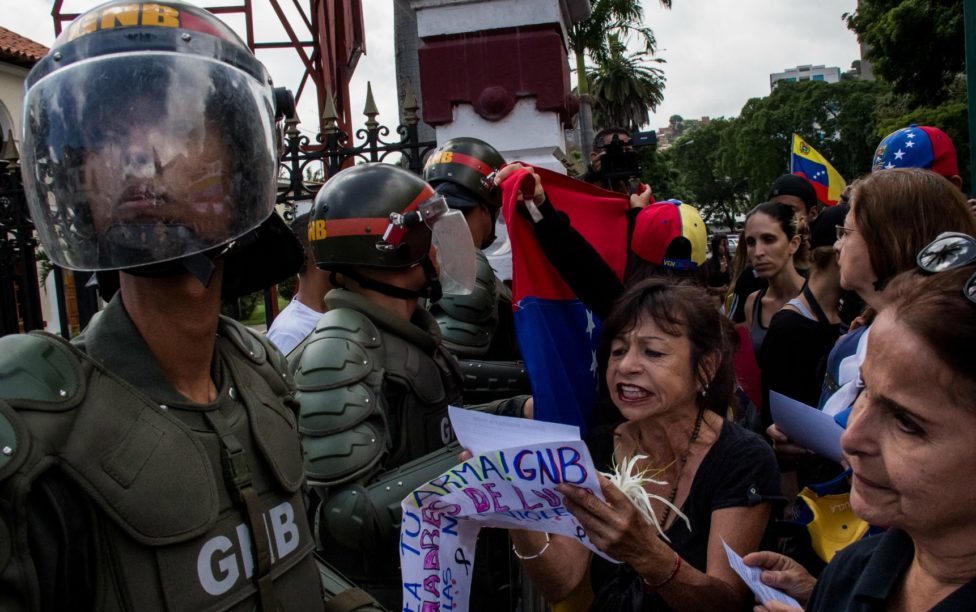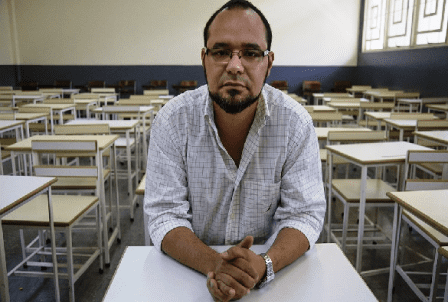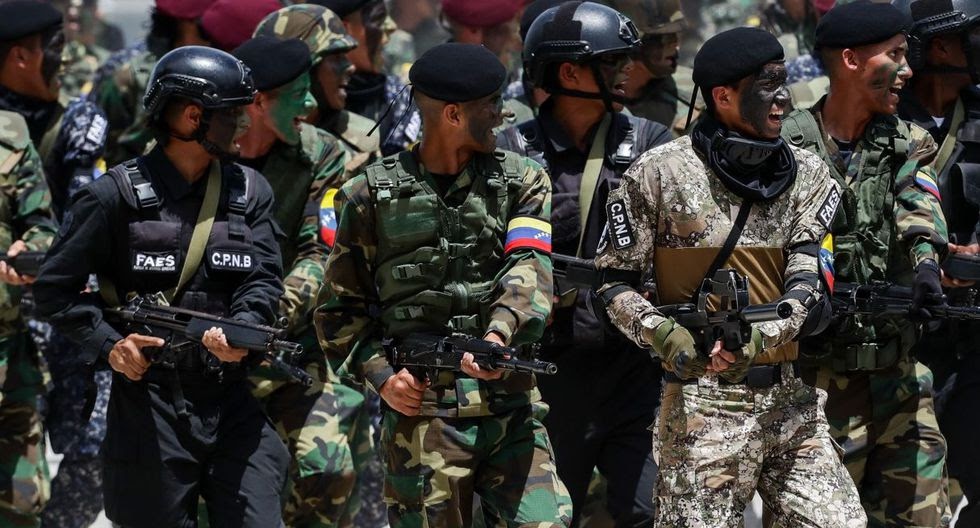The political crisis in Venezuela, the tension with Colombia, the severance of diplomatic and consular relations, and the closure of formal border crossings between two sister countries generate numerous problems that directly affect the residents, merchants, and migrants of both nations, as well as the border population with a binational condition given by their ethnic and family ties and other factors that have favored it.
It is impossible to quantify the enormous impact of the crisis and the tension between the two governments, which have generated social, economic, and human losses, and benefited illegality and criminality. For this reason, it is urgent to open the inter-institutional communication channels and deploy a threefold strategy for addressing humanitarian and social issues, economic reactivation, and security.
Businesses, entrepreneurs, local governments, academics, and the organized civil society of Colombia and Venezuela have maintained a sustained effort in favor of the total reopening of border crossings, consulates, and the institutional communication channels between the two States. From these efforts, and on the occasion of the unblocking of the international bridges, we call on both governments to assume the consequences of the crises and tensions. Venezuela and Colombia cannot pursue the current destructive dynamic.
The signatories celebrate the removal of the containers that impeded circulation between the two countries through the Simón Bolívar and Francisco de Paula Santander bridges and hope for the same in Unión Bridge. We urge the competent institutions of each country to immediately initiate a dialogue to address the humanitarian, socio-economic, and security crisis, and reactivate the economic and commercial activity between the two countries. Initiatives have emerged from different sectors, such as those contained in the Declaration of San Antonio, drafted by actors from Táchira and Norte de Santander on October 3. Here are some of those proposals:
• To agree on and implement a joint sanitary and biosafety control program to allows the transit of people between the two countries, starting by the Andean border area where part of Táchira and Norte de Santander make up a joint metropolitan area.
• To strengthen the humanitarian corridor for the passage of migrants, returnees, or young people who study in Colombia, as well as indigenous populations and those who seek essential goods and services or have family ties in one or the other side of the border.
• To agree on and implement joint sanitary and customs control programs and stimulate a sustainable effort to reactivate business activities paralyzed after six years of the border closure.
• To reactivate consular services, which does not imply the political recognition of a government rather than a service for citizens of one country residing in the other.
• To bring back the institutional framework necessary to serve the needs of the border. As a first step, the Binational Border Commission could be reactivated with the participation of local authorities and the objective of defining the procedures to fight all irregular armed groups operating in the area.
• To make use of the new Colombian legal framework for border areas (border law 2135 and the Special Economic and Social Zone) and its Venezuelan counterpart (The Special Economic Zones of Ureña and San Antonio) to analyze similarities, differences, and ways to reactivate the economy and the productive apparatus.
• To agree on and implement measures to review and address the environmental issues of the binational strategic ecosystems while involving the local authorities that have tried to address the most urgent problems and needs in this regard.
• To promote coordination between local, regional, and national authorities, chambers of commerce, and social organizations that provide assistance to migrants in the area or strengthen positive ties between the two countries.
October 14, 2021
Signatories:
- – Magali Alba Niño, trabajadora social y profesora de la Universidad Simón Bolívar sede Cúcuta, Colombia.
- – Indira Urbaneja, Reunificados ORG, Venezuela.
- – Socorro Ramírez, profesora jubilada de la Universidad Nacional de Colombia y miembro de Puentes Ciudadanos Colombia-Venezuela (PCCV).
- – Rocío San Miguel, presidenta de Control Ciudadano para la Seguridad la Defensa y la Fuerza Armada Nacional, Venezuela.
- – Kristina Birke Daniels, directora de la Friedrich-Ebert Stiftung en Colombia (Fescol).
- – Margarita López Maya, profesora titular de la Universidad Central de Venezuela y vicepresidente de la Asociación de Estudios Latinoamericanos (LASA).
- – María Ángela Holguín, excanciller de Colombia.
- – Ligia Bolívar, coordinadora general de AlertaVenezuela.
- – María del Carmen Muñoz, investigadora del Centro de Investigación y Educación Popular (CINEP), Colombia.
- – Williams Dávila, diputado y exgobernador del Estado Mérida, Venezuela.
- – Rodrigo Pardo, excanciller de Colombia y periodista.
- – Pável Rondón, exembajador de Venezuela en Colombia y miembro de la Fundación de Estudios Financieros (FUNDEF).
- – Carlos Mejía, director ejecutivo de Oxfam Colombia y miembro de PCCV.
- – Enrique Ochoa Antich, Venezuela.
- – Daniel García-Peña, Universidad Nacional de Colombia
- – Padre Alfredo Infante S.J., Venezuela.
- – Saruy Tolosa, coordinador de proyectos de Fescol.
- – Víctor Álvarez, economista, Premio Nacional de Ciencia, Venezuela.
- – León Valencia, Fundación Paz y Reconciliación (Pares), Colombia.
- – Leonardo Manrique, Coalición por los derechos humanos y la democracia capítulo Táchira, Venezuela.
- – Martha Márquez, directora CINEP, Colombia.
- – Maryclen Stelling, socióloga, Venezuela.
- – Pilar Gaitán, miembro de PCCV, Colombia.
- – Padre Eduardo Soto S.J., párroco de la iglesia San Camilo de Lelis de El Nula, Estado Apure, Venezuela.
- – Luis Eduardo Celis, Pares, Colombia
- – Luis Fuenmayor Toro, exrector de la Universidad Central de Venezuela.
- – Carlos Herrera, filósofo y magíster en Ciencia Política, Colombia.
- – Carlos Krisch, miembro del proyecto Entre Parceros y Panas, Venezuela.
- – Ronal Rodríguez, investigador del Observatorio Venezuela de la Universidad del Rosario, Colombia.
- – Mireya Lozada, Universidad Central de Venezuela.
- – Luis Fernando Trejos, profesor universitario, Colombia.
- – Guillermo Tell Aveledo, Universidad Metropolitana de Caracas, Venezuela.
- – Hernando Gómez Serrano, Colombia.
- – Dulce García, Fe y Alegría, Venezuela.
- – Laura Gil, internacionalista, Colombia.
- – Eglée González Lobato, Mujeres 2030, Venezuela.
- – Marina Sierra, docente de la Universidad Francisco de Paula Santander, Cúcuta, Colombia.
- – Laura Louza, Acceso a la Justicia, Venezuela.
- – Patricia Lara, escritora y columnista, Colombia.
- – Adriana Carrillo, Creemos Alianza Ciudadana, Táchira, Venezuela.
- – Marta Ardila, docente de la Universidad Externado de Colombia.
- – Jo D’Elia, Civilis Derecho Humanos, Venezuela.
- – Héctor Galeano, Corporación Cultura y Desarrollo, Colombia.
- – Leonardo David Álvarez Arcia, Compañía de Jesús, Venezuela.
- -María Teresa Garcés, miembro de La Paz Querida, Colombia.
- – Rafael Uzcátegui, Programa Venezolano de Educación Acción en Derechos Humanos (Provea).
- – Alejo Vargas, profesor de la Universidad Nacional de Colombia.
- – Lexys Rendón, Laboratorio de Paz, Venezuela.
- – Lucía Meneses, profesora universitaria, Colombia.
- – Héctor Escandell García, Oficina Derechos Humanos Vicariato de Puerto Ayacucho, Venezuela.
- – Carlos Mario Perea, profesor de la Universidad Nacional de Colombia.
- – José Ángel Rivero, Universidad de Los Andes-Mérida, Venezuela.
- – Óscar Calderón, Servicio Jesuita A Refugiados (SJR) para América Latina y el Caribe, Colombia.
- – Tamara Herrera, Venezuela
- – Daniel Morón, director Fundación Trabajando Juntos, Colombia. – Francisco Alfaro Pareja, investigador externo IIH Bolivarium y Universidad Simón Bolívar, PCCV, Venezuela.
- – Claudia Mosquera Rosero-Labbé, Laboratorio de Paz Territorial, sede La Paz de la Universidad Nacional de Colombia.
- – Rosa Helena Ibarra, Hijas de María Auxiliadora, Venezuela.
- – César Grajales, Diakonia, Colombia.
- – Eulices López, Fe y Alegría, Venezuela.
- – Alberto Lara, Colombia
- – Leandro Buzón, Caracas Mi Convive, Venezuela.
- – Jaime Zuluaga, profesor de la Universidad Externado de Colombia.
- – Rigoberto Lobo, Promoción, Educación y Defensa en Derechos Humanos, Venezuela.
- – Karen Almanza, profesora universitaria, Colombia.
- – Jesús Alberto Labrador, abogado y profesor universitario, Venezuela.
- – Luis Emil Sanabria Durán, Manos ciudadanas, Colombia,
- – Feliciano Reyna, Acción Solidaria, Venezuela.
- – Diana Ramírez, Colombia.
- – Egle Iturbe, Fundación Integración y Desarrollo, Venezuela.
- – María Fernanda Márquez, Colombia.
- – Bettina Latuff, Rodeemos el Diálogo, Venezuela.
- – Laura Henao, Colombia.
- – Joan López Urdaneta, Instituto de Gerencia y Estrategia del Zulia (IGEZ) y Academia de Historia del Estado Zulia, Venezuela.
- – Colombia Contreras, Mesa de víctimas de Abrego, Norte de Santander, Colombia.
- – Isabel Castillo, Venezuela.
- – Rafael Piñeros Ayala, Universidad Externado de Colombia.
- – César Mogollón, Alianza Centro Venezuela.
- – Rafael Carrillo Fernández, docente Universidad Francisco de Paula Santander, Colombia.
- – Andrés F. Aponte, de la Fundación Ideas para la Paz (FIP), Colombia.
- – Lucía Ramírez Bolívar, Colombia.
- – Ángel Alberto Morillo, periodista de Vida Nueva, Colombia.
- – Esmeralda Vargas Vallejo, Colombia.
- – Astrid Amaya, Colombia.
- – Wilson Javier Anzola Fajardo, Oxfam Colombia.
- – Ruby Esther León Díaz, Universidad Nacional de Colombia.
- – Amelia Rocío Cotes Cortés, Ases de Paz, Colombia.
- – Andrés Acosta, Colombia.
- – Sandra Patricia Mojica, Colombia.
- – Pedro Santana Rodríguez, Revista Sur, Colombia.
- – Aura María Puyana, Corporación Viso Mutop, Colombia.
- – José Noé Ríos, Colombia.
- – Gustavo Adolfo Puyo Tamayo, Universidad Nacional de Colombia.
- – Paola Bonilla, Oxfam Colombia.
- – Wilson Román Márquez Daza, Corporación Autónoma del Cesar (Corpocesar), Colombia.
- – Laura Bonilla, directora regional para América Latina y el Caribe de ForumCiv, Colombia.
- – Carlos Medina Gallego, Universidad Nacional de Colombia.
- – Octavio Barbosa, Escuela Superior de Administración Pública (ESAP), Colombia.
- – Silvia Leal, SJR, Colombia.
- – Santiago Encinales De La Hoz, PCCV, Colombia.
- – Padre Miguel Ávila, La Paz, Cesar, Colombia.
- – Bram Ebus, criminólogo, Colombia.
- – Kristian Herbolzheimer, Instituto Catalán Internacional de Paz (ICIP), España.
Translated by José Rafael Medina




